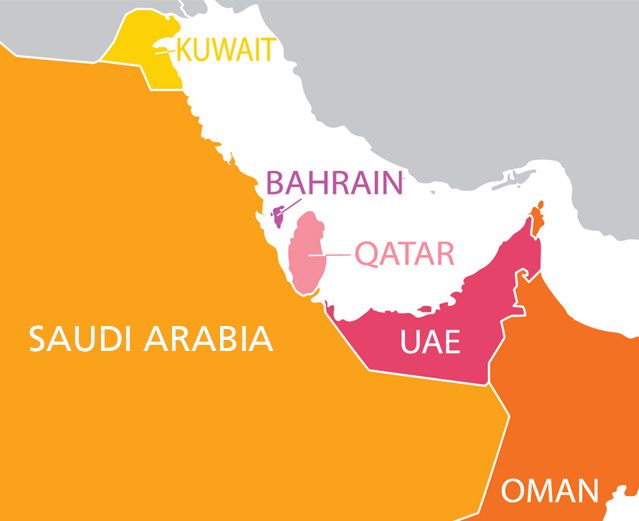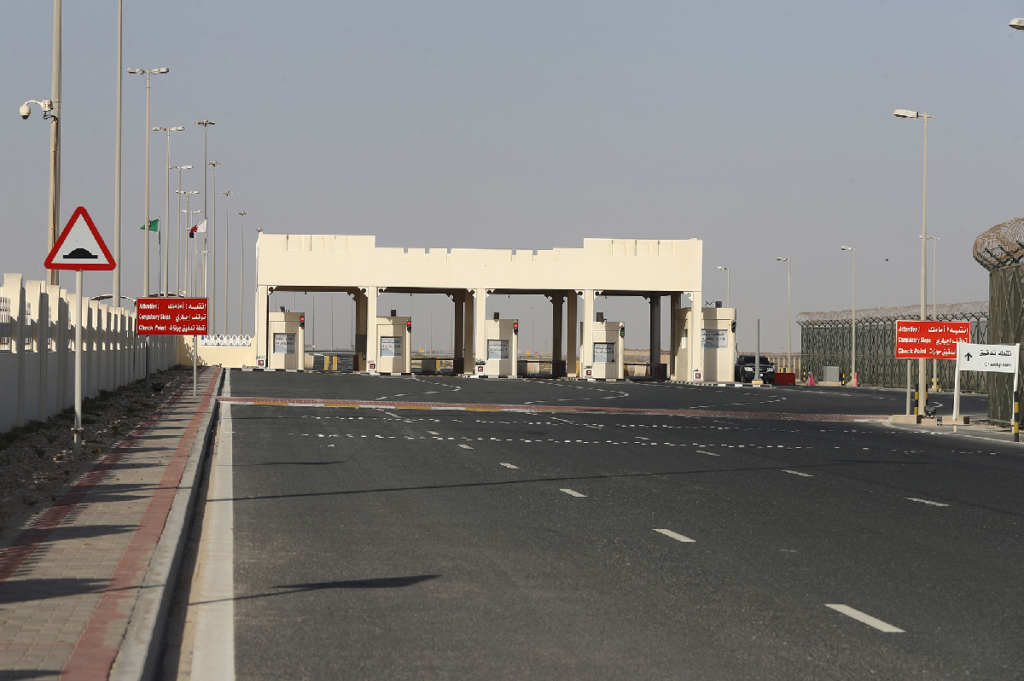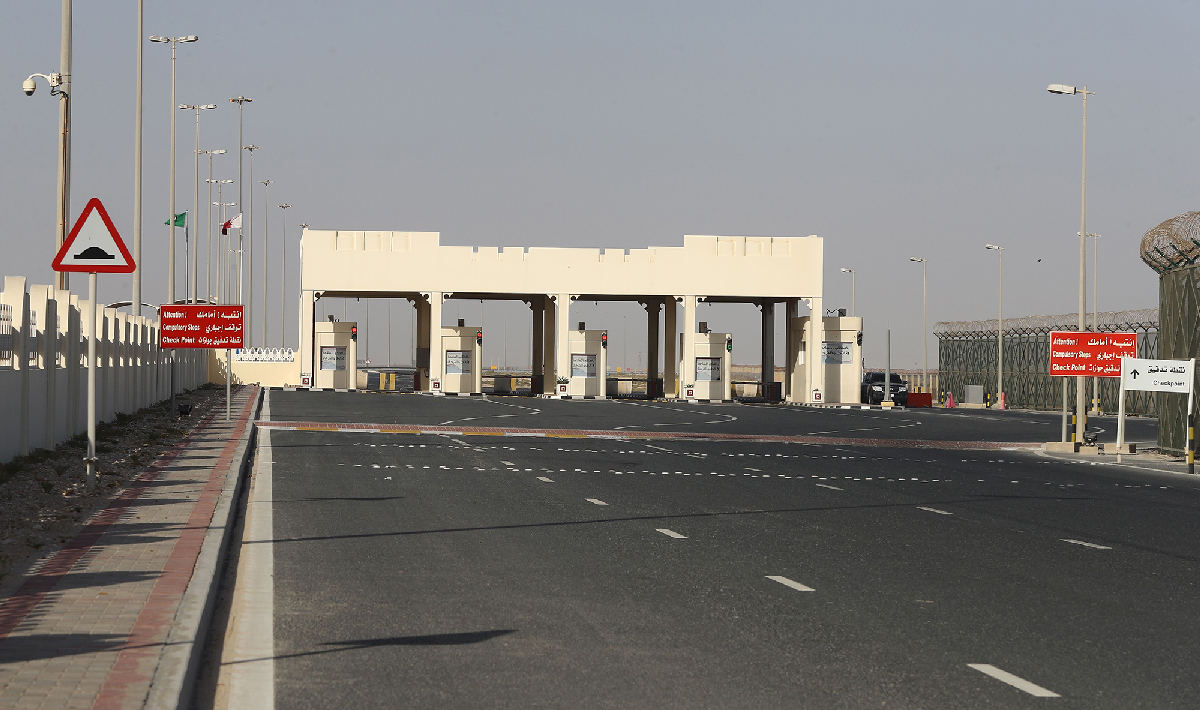A year ago, the governments of Saudi Arabia, Bahrain, the United Arab Emirates (UAE) and Egypt severely restricted ties with Qatar as part of a political dispute. Within 24 hours, flights were suspended indefinitely and borders closed as the dispute escalated into a crisis, taking a serious toll on the lives of many people living in these countries.
For thousands of families and individuals, life was never the same again. In a region where the social fabric is made up of inter-marriages and ties across all countries, families from mixed nationalities were ripped apart, students had to cut short their education, others lost their jobs, and pilgrims from Qatar were banned from accessing Holy Sites in Saudi Arabia. With the food prices increasing as a result of the political crisis, migrant workers, the majority of whom are on low incomes, were also adversely impacted.
A year on, the situation has not improved. Residents of the region are still left facing uncertain futures: families are still waiting to be reunited with their loved ones; children are still waiting for their fathers to come home regularly; students are still waiting to continue their education; and pilgrims are still waiting to get access to the Holy Sites.
Sana*, a Qatari teacher married to a Bahraini man, has two children (18 and 10), both with special needs. Her story is just one of many.
***
When I got married, 23 years ago, I wanted a life of stability and calm. A family.
I fell in love with my husband because he was– kind and full of love. It made no difference that I was Qatari. Our people were one people. We settled in Bahrain because that’s where he worked and we made a beautiful family together. My children were born eight years apart and both have special needs. Disability comes with its challenges but we managed, together, my husband and I, to love them and care for them and make sure they had safe and stable lives.
Those were the good years.
After the turmoil in Bahrain in 2011, we had a difficult decision to make. So we decided that I’d move with them to Qatar, while my husband stayed in Bahrain, where he continued working. And so that’s what we did in 2012 and, since then, the kids and I have lived in Qatar. Every week, my husband would take a long trip by land (about 100 miles) to see us. It was much cheaper than plane tickets, which we couldn’t afford.

My children were used to the routine – and routine is really important to them – and grew to expect their dad home every weekend. They were (and still are) very attached to him.
On 5 June of last year, we, like millions of Arab Gulf citizens, woke up to the news of the Gulf crisis. It was sudden and unexpected. We certainly didn’t think that it would change our lives. But as the everyday reality of the blockade hit us, our lives became far more difficult. The borders were closed down and my husband could no longer make the road trips. Planes were his only option and they weren’t even the short flights. He now had to fly long hours through Kuwait to get to Doha – a 12-hour flight, even more expensive than it was originally. That has meant that he could only visit us once every four or six weeks.
The kids miss their father, always asking me about him. So sometimes I do video calls so they can see him. But that’s not enough. My heart aches when my 10-year-old tries to show his toys to his dad on the video call. He doesn’t quite understand the challenges. Sometimes he lies down in front of the bathroom door thinking his father is inside and will come out to hug him.
I lived for 17 years in Bahrain and was a teacher there. Bahrain was home to me, but now I feel I am not wanted anymore. Each decision taken scares me even more. I do not understand why I need a visa now, I feel I am a stranger in a place that I once considered home. I’ve had to readjust to long periods without my husband. I try to distract the kids with beach or parks or play and it works for a little while until they ask again for their father.

I pray that this crisis will be solved soon so that our family can be together again.
It’s been a year since the blockade and many lives are hanging in the balance. It’s affected our well-being. My kids are forced to live without their father. It’s difficult for them to understand. When will they see him? I don’t know.
It’s been a year since the blockade and many lives are hanging in the balance.
My hope is that this crisis will end as quickly as it started, but for now every day that passes my children are not seeing their father and it is affecting them badly. The crisis has deprived my children from the very much-needed presence of their father.
I only have one request: facilitate the move of families across the countries so that we can see each other. I am really tired, I am left on my own to care for my children, they have special needs and require extra care, I can’t do it by myself I need my husband next to me, my children need their father next to them.
***
Amnesty International is calling on all states involved in the crisis to ensure their actions do not lead to human rights violations. We continue to call on Saudi Arabia, Bahrain and the UAE to immediately lift all arbitrary restrictions imposed on the freedom of movement of Gulf nationals and residents including the right of Qatari nationals and foreign residents in Qatar to access the Holy Sites in Saudi Arabia.
Qatari authorities should allow Qatari women to automatically pass on their nationality to their children and not to only allow them to pass the right to permanent residency to them; they should also take steps to mitigate the effects of the price rises caused by the crisis on the rights to an adequate standard of living, including access to adequate food.
* Name has been changed in order to protect her identity


